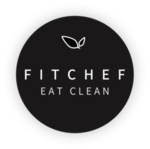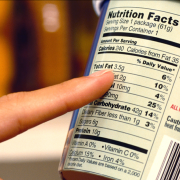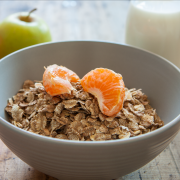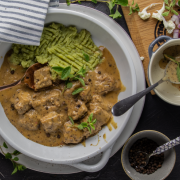
Two in three US consumers buy organic products, and more than one in four buy organic food at least once a week. Closer to home, one in three Gauteng grocery shoppers report buying organic food each month. Clearly, consumers around the world are becoming more and more concern about their health, and organic food is a viable solution for many of these concerns of the effect of pesticides, fertilisers, and animal drug use on our heath and wellbeing.
What is Organic Food?
According to the International Foundation for Organic Agriculture (IFOA), organic farming prides itself in sustaining the health of soils, ecosystems, and it’s people, based on four key principles: health, ecology, fairness, and care. Organic farming is about growing fresh produce and raising stock that avoids synthetic pesticides, chemicals, growth hormones, antibiotics, and genetic engineering.
How Popular is Organic Food?
Organic food is clearly gaining popularity in a time where health, food security, and sustainability of the environment is at a tipping point. Worldwide, more than 140 countries produce certified organic food with 32.2 million hectares of agricultural land dedicated to organic farming and manged by more than 1.2 million producers. The amount of agriculture space dedicated to organic crops has doubled since 1997 in the US.
Do we Have Organic Food in South Africa?
Various cereals, vegetables (mostly asparagus and potatoes), herbs, spices, fruits (mostly bananas, pears and mangos), avocadoes, nuts, and Rooibos tea make up most of the organic food in the country, and organic wine and olive oil is also produced and organic dairy farming is growing around the country. According to estimates by the Department of Agriculture, Forestry, Fishery there are currently about 250 organic farms which account for a mere 0.05 % of South Africa’s total farming area.
Yet despite growing popularity, South Africa does not as yet have an official certification system for organic farming. This means that organic farming is not held to strict standards and this lack of regulation makes the consumer vulnerable to misleading claims by supposed organic fresh produce suppliers. Less than half of the R200 - R400 million turnover of organic food in South Africa is certified, and less than half of South African consumers purchasing organic food believe that the products are in fact organic.
Is Organic Food Safer for Me?
Diets made up of more organic food tend to be lower in pesticides. South Africa is one of the largest users of pesticides in Africa. The nervous system is particularly sensitive to the accumulation of pesticide toxins that can contribute to conditions such as Parkinson’s disease, Alzheimer’s disease, and dementia. Pesticides have also been associated with various cancers, hearing loss, diabetes, and obesity. The challenge is that these risks are difficult to know for sure as the period and level of exposure and type of pesticide play a role. This is partly why researchers will conclude no final say can be made on the link between pesticides and our health as many factors may contribute to the development of diseases.
Is Organic Food More Nutritious?
A big reason for purchasing organic food is that it is perceived to be healthier, containing more and higher levels of nutrients than non-organic foods. While organic food may reduce your exposure to pesticides and bacteria, organic foods are not significantly more nutritious than non-organic foods. There are also no disease-promoting benefits from eating an organic diet.
Organic foods tend to be much more expensive than non-organic food, understandably because of higher production costs, increased labour to produce the food, and also a lower demand. The concern is that this higher cost may deter people from eating fruits and vegetables. Fortunately, international parties such as the European Union (EU), Codex Alimentarius Commission (Codex), and North American Free Trade Agreement (NAFTA) have attempted to regulate pesticide use in farming by setting maximum levels of pesticides allowed. You can further limit your exposure to pesticide as far as possible by washing all fresh fruit and vegetables before preparation, and growing your own fresh produce with a home, school, church, or community vegetable garden.
Yet since there is no detrimental or negative health effects from an organic diet too, should you choose to go organic for health reasons, and can afford to, by all means do so. While organic food is not necessarily more nutritious for us, the lower pesticide levels in organic foods is better for our overall health. Either the way, we need to be eating more fruit and vegetables. Globally, each year, low intakes of fruit has been linked to over 520 000 heart disease deaths and more than 1.2 million stroke deaths. Low vegetable intake is estimated to cause just under 810 000 heart disease deaths and over 210 000 stroke deaths. FitChef prides itself on making whole, fresh fruit and vegetables the basis of our meal, free from added flavourants, colourants and preservatives.

 No added or artificial sugars
No added or artificial sugars The cleanest ingredient labels
The cleanest ingredient labels






